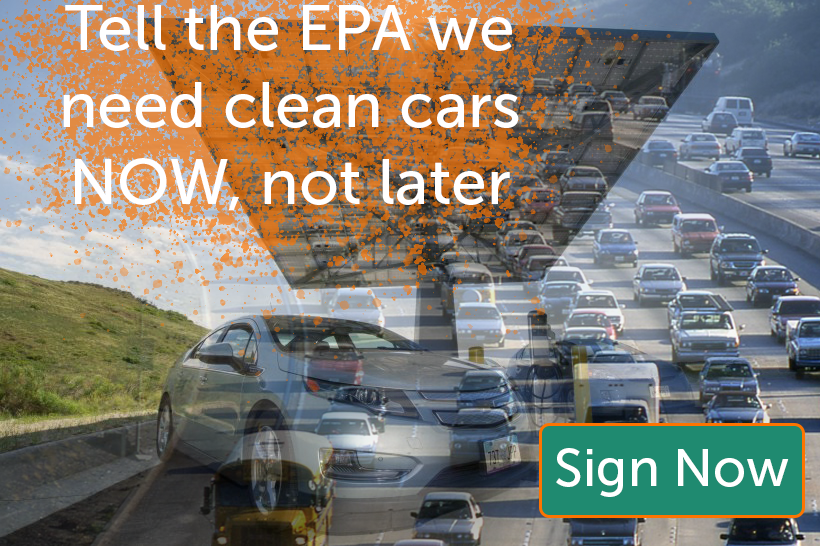I have another quick action, with another holiday weekend deadline, this time about all the cars in America.
Transportation accounts for nearly a third of total US climate pollution, and is the biggest individual source of climate pollution in US right now. Fortunately, the EPA is finalizing new rules for car and truck pollution right now. Unfortunately, the EPA has set the bar too low: They’re only aiming to cut climate pollution from cars in half by 2030 – even including all the new electric vehicles they hope American’s will buy over the next few years. That will not be enough to meet President Biden’s goals of reducing global warming pollution from all sectors 50% by 2030 and to “net zero” by 2050.
Not only are internal combustion powered cars bad for the climate, they produce health-harming pollutants like ozone and carbon monoxide that can exacerbate asthma, and are linked to lung disease and cancer. Cleaning up our cars is a key part of President Biden’s plans to clean cut global warming pollution and (finally, after nearly a decade of failure) meet our commitments under the Paris climate agreement.
But, as with a number of things in the Inflation Reduction Act (IRA), the emphasis has been firmly on tax credits for switching our automobiles from gas to electric. But tax incentives and rebates only go so far. To fix climate change we need both incentives like what’s in the IRA, and penalties from the EPA and other agencies that will push auto manufacturers to phase out gasoline and the climate and air pollution that comes with it.
We need to send a message to EPA Administrator Michael Regan to tell him to double down on clean cars, now, not later – by pushing for 75% zero emissions vehicles by 2030, and 100% clean cars by 2035. If adopted, those standards will keep President Biden’s commitment to clean up our cars and cut US emissions of global warming pollution.
But we only have a few days left to gather and deliver as many comments as possible. Click here to start yours, and help us get to 100% clean green cars by 2035.
